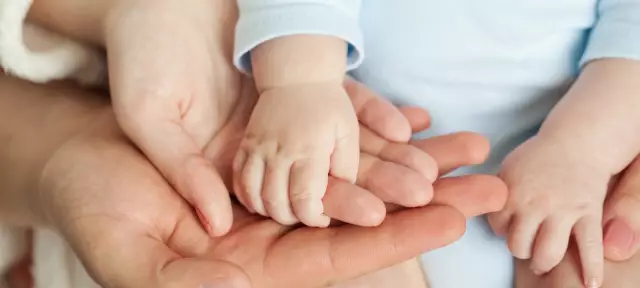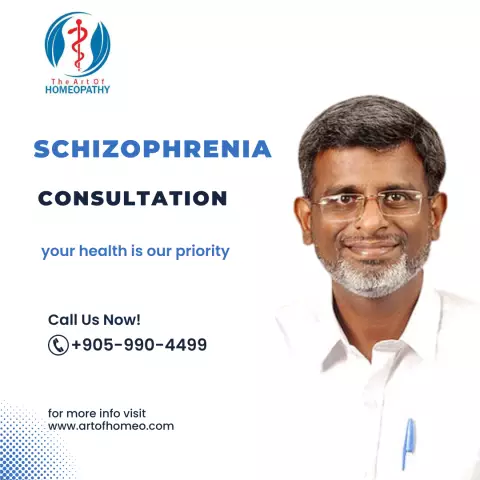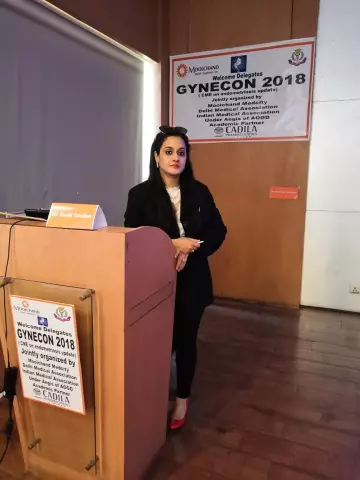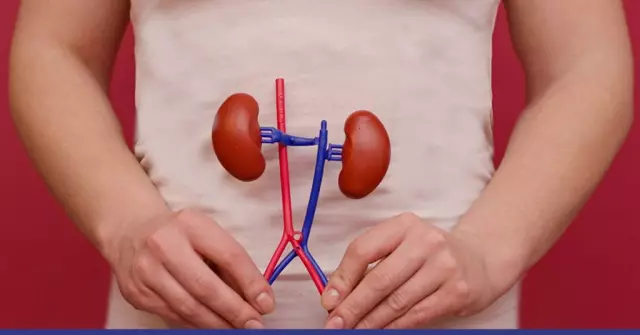- Author Rachel Wainwright wainwright@abchealthonline.com.
- Public 2023-12-15 07:39.
- Last modified 2025-11-02 20:14.
6 possible complications after IVF
In vitro fertilization is one of the most modern methods of combating infertility. By now, he has already helped many married couples to become happy parents. Usually, the IVF procedure, difficult and very expensive, is resorted to in situations where all other ways to have a child are ineffective. "Conception in a test tube" gives good results in cases of infertility of one of the partners, the presence of obstruction of the fallopian tubes or endometriosis in a woman, as well as hormonal disruptions associated with age-related extinction of reproductive function.
It is clear that a woman desperate to become pregnant naturally resorts to the IVF procedure as the last chance to conceive a child and will not back down from her decision, even knowing about possible complications. This, however, does not mean that information of this kind should not be obtained: it is necessary to be prepared for various consequences of medical manipulations.
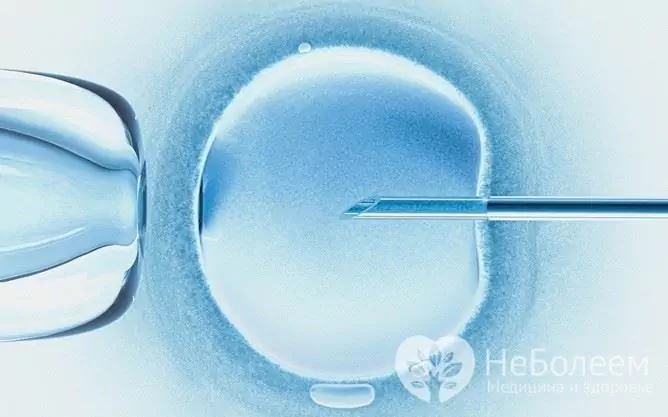
Source: depositphotos.com
Internal bleeding
To fertilize an egg in a test tube, it must be removed from a woman's body at a certain point in the menstrual cycle. The procedure is carried out with anesthesia: under the control of an ultrasound vaginal sensor, the doctor makes a puncture in the ovarian wall and, using aspiration (suction) with a special syringe through a hollow needle, takes the egg together with follicular fluid.
The manipulation itself is harmless and low-traumatic (especially if the patient exactly followed all the doctor's instructions, preparing for the procedure). However, there is still a small risk of vaginal bleeding. To minimize the danger, the doctor leaves the woman in the clinic under supervision for 2-3 hours after taking the egg.
Ectopic pregnancy
According to statistics, about 10% of IVF procedures end with an ectopic pregnancy. This result can be caused by:
- initial defects of the fallopian tubes (including those that caused the decision to artificial insemination);
- trauma to the fallopian tubes due to displacement of excessively enlarged ovaries;
- improper attachment of the embryo. Within 3 days after replanting, the fertilized egg moves freely and can go beyond the uterine cavity;
- mistakes made by doctors during the examination before the IVF procedure. If a woman has inflammatory diseases of the reproductive organs that can provoke the development of adhesions, they must be diagnosed and completely cured in advance. Adhesions that are not noticed in time can cause the embryo to attach in the abdominal cavity or inside the fallopian tube.
Experts note that an ectopic pregnancy after the IVF procedure can occur even if the woman's fallopian tubes are removed. Especially unpleasant is the situation when two or more embryos are implanted into the uterus, one of which is attached in the wrong place. In this case, doctors are faced with the difficult task of removing such an embryo without harming the rest, which is not always the case.
Side effects caused by taking medications
Preparation for conception involves taking a large number of specific drugs. They can cause symptoms such as nausea, vomiting, shortness of breath, abdominal pain, and bloating. Sometimes there is a delay in urination with normal fluid intake and a change in the color of urine.
Internal tissue damage
When taking an egg, there is a small risk of puncture of the walls of organs located next to the ovary. In about one case in a thousand, a patient needs surgery to repair damage to the bowel or bladder.
Ovarian hyperstimulation syndrome
The specificity of the IVF procedure is such that in order to increase its effectiveness, it is worth not one egg, but several eggs to be fertilized and implanted into the uterus (which is why women who decide to become pregnant in this way often become mothers of twins). But the female body usually produces only one mature egg during the menstrual cycle. Therefore, some time before the collection of reproductive material, patients are injected with hCG (human choriogonadotropin). If the dose of the hormone is exceeded, a serious complication may develop - ovarian hyperstimulation syndrome. It is manifested by the accumulation of fluid in the chest and abdominal cavity, an increase in body temperature, indomitable vomiting, severe pain in the back and abdomen, and blood in the urine. This condition requires immediate medical attention, and in some cases - urgent hospitalization.
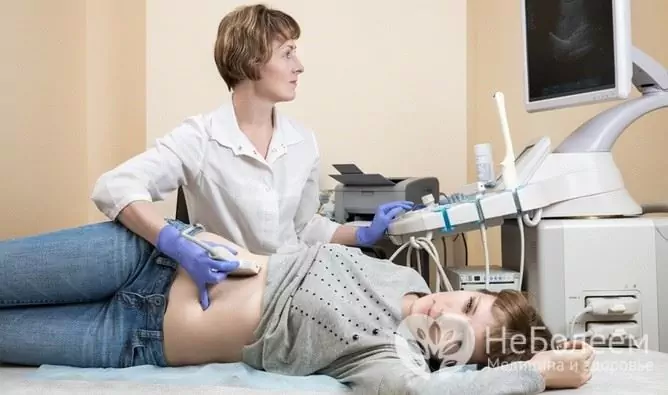
Source: depositphotos.com
Depression
IVF procedure is associated with serious physical and mental stress. It is used by couples who have been treated for infertility for many years. They hope for a better outcome, but they know that the method does not give one hundred percent guarantee of the onset of conception. Therefore, one or both partners may show signs of depression.
For some time it was believed that drugs that stimulate the ovaries could cause the development of malignant neoplasms. These fears were in vain. But during the IVF procedure, the risk of pathogenic microorganisms entering the uterus is not excluded (with insufficient conscientious work of medical personnel and non-observance of proper sterility). In addition, there is a likelihood of an allergy to the drugs used during the manipulations (including anesthetics). When choosing a well-known clinic with a good reputation, the couple can hope that the procedure will bring the desired result and they will finally become parents, avoiding most of the problems.
YouTube video related to the article:

Maria Kulkes Medical journalist About the author
Education: First Moscow State Medical University named after I. M. Sechenov, specialty "General Medicine".
Found a mistake in the text? Select it and press Ctrl + Enter.

